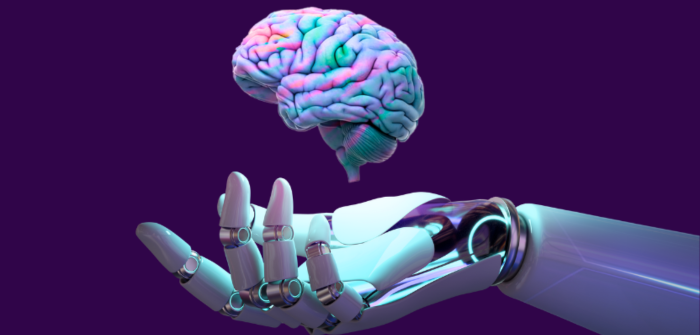
The development of artificial intelligence has brought forward numerous IP issues at hand. Prima facie, AI seems like a cornerstone for innovation and development, but a profound analysis proves that there exist eminent threats to innovation and creativity, which are the true essence of IPR. In an era where the line separating human creativity and artificial intelligence is blurred, there lies a question of whether copyright can be granted to AI generated works?
Large language models (LLM) are AI systems capable of understanding and generating human language by processing large amounts of text data. LLM can use what they have processed from this data and reply to prompts given in natural language accordingly. In a lawsuit against OpenAI, the creators of the prominent AI tool, ChatGPT, alleging that ChatGPT used the copyrighted content of books written by the plaintiffs to train the artificial intelligence models. The lawsuit alleges that the LLM ultimately, copies any text entered and uses the phrase subsisting in it. It is also alleged that LLM gradually adjusts its output to more closely resemble the word sequences copied from the text data that is used to train the AI. Does this come under the exception of fair use when it is utilised in a public or commercial context?
Now Considering the Indian scenario for the same, In the case of Civic Chandran v. Ammini Amma , the court held that:
"It may be reasonable to hold that the re-production of the whole or a substantial portion of it as such will not normally be permitted and only extracts or quotations from the work will alone be permitted even as fair dealing".
But in this case, where the whole portion of the copyrighted contents owned by different authors are used by AI is in violation of the said authors’ rights, there is a clear case of copyright infringement.
This brings us to two very important questions at hand,
One being, In the midst of the growing technological advancements, are the rights of the original creators colossally violated?
And the other is that, if copyright protection is given to persons who causes the computer-generated work to be created, (i.e., the prompt giver), then what becomes of the rights of the original copyright holders from where the AI has generated its inputs?
Global Picture
Foreign countries have taken varying stances in this regard, such as in the United Kingdom, a “computer generated” work is one that is generated by a computer in circumstances where there is no human author of the work. The “author” of a computer-generated work is the person who made the necessary arrangements to create the work. Such works will be protected for 50 years from the end of the calendar year in which they were created. Whereas, contradicting position is taken by the Chinese and US courts in the decisions Beijing Feilin Law Firm v. Beijing Baidu Technology Co. Ltd and Thaler v. Perlmutter , respectively. Both these courts decided that AI generated works cannot be granted Copyright.
Conclusion
As per the current Indian IP laws, copyright protection is not awarded for AI generated works. However, Section 2(d)(vi) of The Copyright Act, 1957 states that, author in relation to any literary, dramatic, musical or artistic work which is computer-generated, is the person who causes the work to be created.
But that leads us back to the answer to the first question that is, the rights of the original creators will get infringed if the Indian IP laws change to an extent where copyright protection is granted to AI generated works. Another important factor to be considered while dealing with AI and Copyright is that there is no procedural mandate that makes sure that an application for copyright does not contain plagiarised or AI generated content. Which makes it even more difficult to ascertain whether an application contains content that is original or created using human intelligence or if it is generated by AI, further violating the rights of the original creators or copyright holders. There are grey areas in the legal system when AI comes into play and it is high time that this is addressed.
© 2026 Business Consultant & Law Firm - Legacy Partners. All Rights Reserved.
Designed by Nuewelle Digital Solutions LLP

Legacy Partners
We typically reply in a few minutes